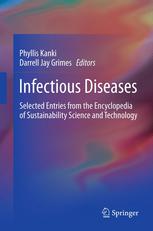

Most ebook files are in PDF format, so you can easily read them using various software such as Foxit Reader or directly on the Google Chrome browser.
Some ebook files are released by publishers in other formats such as .awz, .mobi, .epub, .fb2, etc. You may need to install specific software to read these formats on mobile/PC, such as Calibre.
Please read the tutorial at this link: https://ebookbell.com/faq
We offer FREE conversion to the popular formats you request; however, this may take some time. Therefore, right after payment, please email us, and we will try to provide the service as quickly as possible.
For some exceptional file formats or broken links (if any), please refrain from opening any disputes. Instead, email us first, and we will try to assist within a maximum of 6 hours.
EbookBell Team

5.0
108 reviewsInfectious Diseases: Selected Entries from the Encyclopedia of Sustainability Science and Technology presents authoritative, peer-reviewed contributions from leading experts on a wide range of major infectious diseases of global importance. Infectious diseases account for more than 17 million deaths each year worldwide. While modern medicine and technology have diminished the threat of many of these pathogens in high-income countries, the ever present threats of re-emerging infections, population mobility, natural disasters, and pathogen genetic variability are but some of the reasons for the dynamic threat of this broad category of risks to human health.
An indispensable resource for students and scientists, the volume also covers some of the new technologies currently under development for infectious disease prevention, treatment, and eradication. The greater part of the infectious disease burden remains in the tropics, where low and middle-income countries lack the resources, infrastructure, and health systems to mount or sustain control efforts. Many contributions describe the efforts of the scientific research community and international donor agencies to achieve the integrated goals of vigilant surveillance, improved and cost-effective diagnostics, and treatment for sustainable disease control.